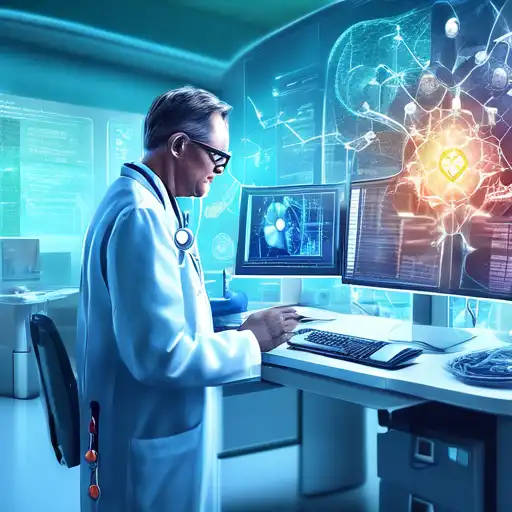The Transformative Impact of Data Science on Modern Healthcare
In the rapidly evolving world of healthcare, data science has emerged as a cornerstone of innovation, driving unprecedented changes in how medical professionals diagnose, treat, and prevent diseases. By harnessing the power of big data, machine learning, and artificial intelligence, the healthcare industry is undergoing a transformation that promises to enhance patient outcomes, streamline operations, and reduce costs.
Revolutionizing Patient Care with Predictive Analytics
One of the most significant contributions of data science to healthcare is the development of predictive analytics. This technology enables healthcare providers to identify patients at high risk of chronic diseases, such as diabetes or heart disease, before symptoms manifest. By analyzing vast datasets, including medical records and lifestyle factors, predictive models can forecast health trends and suggest preventive measures, ultimately saving lives and reducing healthcare expenses.
Enhancing Diagnostic Accuracy with Machine Learning
Machine learning algorithms are revolutionizing diagnostic processes by analyzing medical images with precision that often surpasses human capability. From detecting early signs of cancer in radiology scans to identifying patterns in genetic data that predict disease susceptibility, data science is making diagnostics faster, more accurate, and less invasive.
Optimizing Treatment Plans Through Personalized Medicine
Data science is paving the way for personalized medicine, where treatment plans are tailored to the individual's genetic makeup, lifestyle, and environment. By analyzing data from wearable devices and electronic health records, healthcare providers can now offer customized recommendations that improve treatment efficacy and minimize side effects.
Streamlining Healthcare Operations with Big Data
Beyond patient care, data science is optimizing healthcare operations. Hospitals and clinics are using big data analytics to manage resources more efficiently, predict patient admission rates, and reduce wait times. This not only improves the patient experience but also enhances the operational efficiency of healthcare facilities.
Challenges and Opportunities Ahead
Despite its potential, the integration of data science into healthcare faces challenges, including data privacy concerns and the need for robust cybersecurity measures. However, with ongoing advancements in technology and regulatory frameworks, the opportunities for innovation in healthcare are boundless.
As we look to the future, the role of data science in healthcare will only grow, offering new ways to improve patient care, enhance diagnostic accuracy, and streamline operations. The intersection of healthcare and data science is not just transforming the industry; it's redefining what's possible in medicine.
For more insights into how technology is shaping the future of healthcare, explore our articles on medical technology and artificial intelligence in healthcare.
